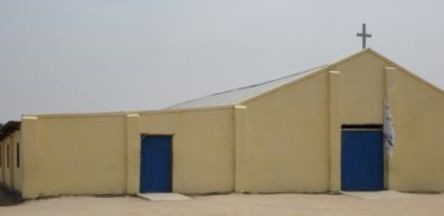Church leaders in Jonglei State from both Dinka and Nuer ethnicities have affirmed a desire for reconciliation efforts to go forward in all eleven counties of the state.
Fighting is still ongoing in parts of Jonglei, South Sudan’s largest state, which is controlled partly by the government and partly by the opposition. The diverse state is home to people of several ethnicities, the largest being Dinka and Nuer.
Speaking to Radio Tamazuj, the Dean of St. Andrew’s Episcopal Cathedral of the Diocese of Bor, Rev. Thomas Agou Kur, affirmed the churches’ commitment to peace and called on the government to give its citizens an opportunity for peace.
The reverend said, “We say to the government that they have to mind of their own people they are governing, whether they are on the rebel side or in the government side, to look for peace.”
“And I am asking the world community also to urge them so that the peace is achieved so that people come back to their home, people live peacefully, and they have to step up the organs of peace and reconciliation to be done so that people reconcile,” he said.
Thomas said the ‘way forward’ is democracy, explaining this is a system that can accommodate the complaints of smaller tribes. He said democracy was a way to avoid such crises of tribe against tribe.
Also he pointed to an initiative started by the churches: “Before this war in Jonglei especially, there was a group called Youth Mama, a praying group. It is composed of Nuer, Anyuak, and Dinka and Murle, and even they have songs in different languages that they sing. So the church has been spearheading all this.”
‘One tribe’
The cathedral dean pointed to inter-marriage between DInka and Nuer and mixed origins of many people as a basis for future reconciliation. “We have wives and daughters and sons across each tribe. You know, Dinka and Nuer they are one tribe. And people back (ancestors), they saw it to be one tribe,” he said.
“And even by virtue of their culture and the norms, they are the same. They can easily reconcile. The only people who are even influencing them is these politicians,” said the pastor.
For his part, Rev. William Tut, a Presbyterian Church leader who is an ethnic Nuer residing now inside the UNMISS compound in Bor, welcomed reconciliation exercises. He said it is easy to bring peace among the different tribes of Jonglei.
“Without the church things like peace could not be possible, and that is why we need to meet with pastors of different denominations to see the way forward,” Tut stated.
He also asked the government in the state to stop considering those sheltering in the UNMISS camp as rebels, asserting, “We are civilians.”
“We here in the camp are for peace and that why we are still living together with people from Dinka tribe,” Rev. William stressed.
Photo: Bor town church, 13 February 2014 (Radio Tamazuj)




